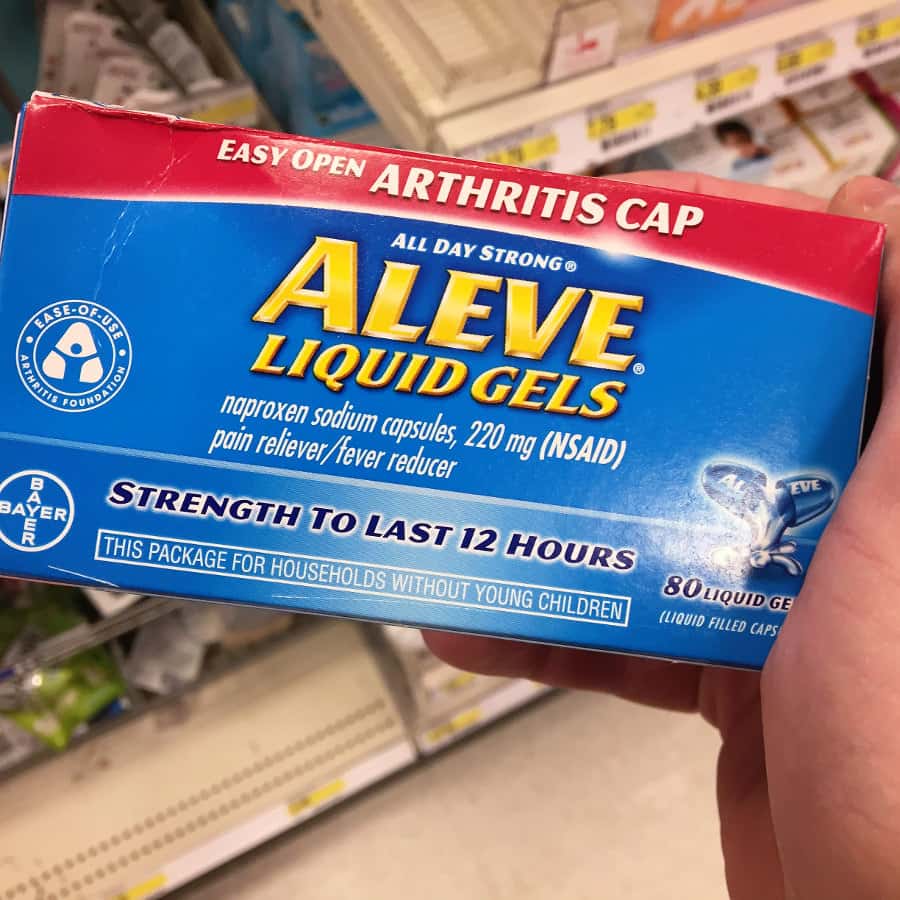
Overview
Naprosyn (Naproxen) is a pain reliever used primarily for arthritis.
Like other nonsteroidal anti-inflammatory drugs, or NSAIDs, it may also be prescribed for menstrual cramps, bursitis, tendinitis, sprains, strains and other painful conditions.
Naprosyn is virtually identical to Anaprox, a popular pain reliever, so these two drugs should never be taken together.
It is also available by its generic name, naproxen, and as an over-the-counter pain reliever, Aleve.
Naproxen Side Effects and Interactions
No matter how you swallow this medicine, the most common side effects of Naprosyn involve the gastrointestinal tract.
They include nausea, indigestion, heartburn, cramps, gas, constipation, and diarrhea.
Some people may develop ulcers and intestinal bleeding while taking Naprosyn. Occasionally these problems can occur without obvious symptoms and lead to a life-threatening crisis due to perforation of the stomach lining. Older people appear to be more susceptible to this problem and should be monitored carefully. Warning signs include weight loss, persistent indigestion, a feeling of fullness after moderate meals, dark or tarry stools, anemia and unusual fatigue. Home stool tests such as Hemoccult or Fleet Detecatest may provide an early indication of bleeding.
Other side effects to watch for include headache, ringing in the ears, rash, itching, difficulty breathing and fluid retention. Drowsiness, dizziness, lightheadedness, difficulty concentrating, and confusion are possible, so do not drive if you become impaired.
Less common adverse reactions include jitteriness, insomnia, heart palpitations, hair loss, depression, tremor, tiredness, visual disturbances, and sores in the mouth. Report any symptoms to your physician promptly.
Naprosyn can affect both the kidney and liver, so periodic blood tests to monitor the function of these organs is important.
Some people become sensitive to sunlight while on Naprosyn, with a severe burn or rash resulting, so use an effective sunscreen, stay covered or avoid the sun.
This medication can interact with many other drugs, including aspirin and alcohol.
Naprosyn may blunt the effectiveness of many blood pressure medicines, including beta-blockers like Corgard or Tenormin, ACE inhibitors like Capoten, Vasotec or Zestril and diuretics like Dyazide or Lasix. It can increase blood levels of the heart drug Lanoxin and increase the toxicity of the transplant drug Sandimmune and the cancer medicine methotrexate.
Because it has the potential to cause GI bleeding, Naprosyn could be dangerous in combination with the blood thinner Coumadin.
If you must take Naprosyn together with either the seizure medication Dilantin or the manic-depression medicine lithium, your physician should monitor blood levels and effects of these drugs closely.
Check with both your doctor and your pharmacist before taking Naprosyn in combination with any other drugs.
Special Precautions
People who are allergic to aspirin or other anti-inflammatory agents should avoid Naprosyn. Signs of allergy include breathing difficulties, rash, fever, or a sudden drop in blood pressure and require immediate medical attention.
Taking the Medicine
Because Naprosyn can be hard on the digestive tract, it may be taken with food to reduce stomach irritation. This offers no guarantee of safety, however.

